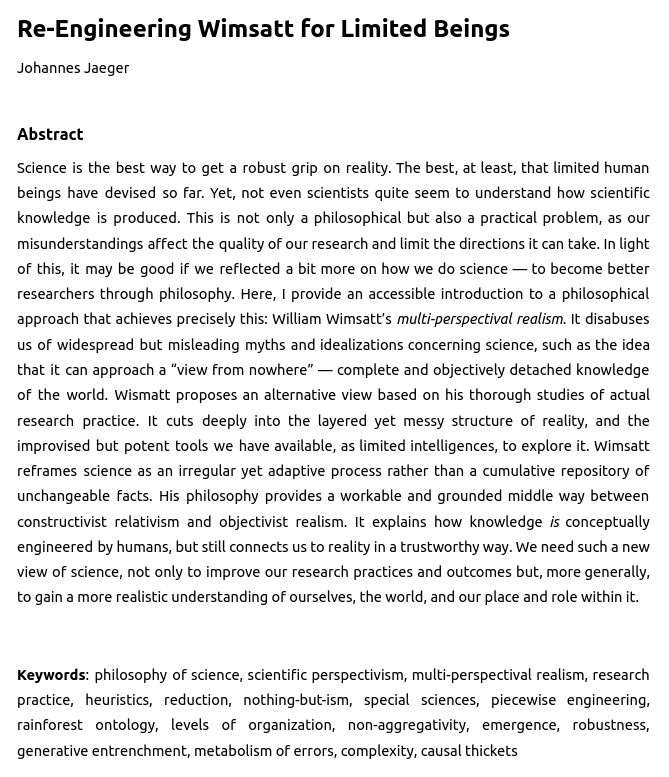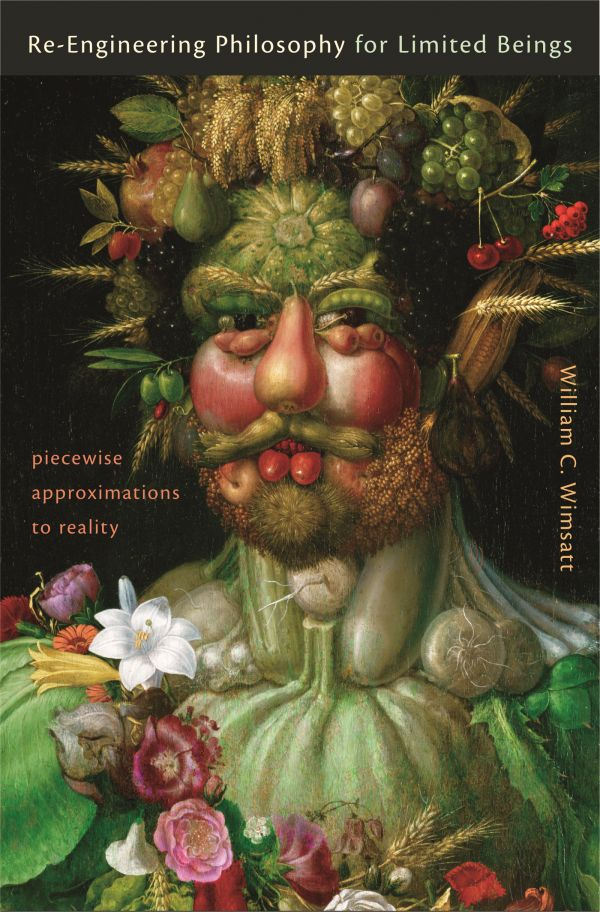Re-Engineering Wimsatt for Limited Beings
Johannes Jaeger
Abstract
Science is the best way to get a robust grip on reality. The best, at least, that limited human beings have devised so far. Yet, not even scientists quite seem to understand how scientific knowledge is produced. This is not only a philosophical but also a practical problem, as our misunderstandings affect the quality of our research and limit the directions it can take. In light of this, it may be good if we reflected a bit more on how we do science — to become better researchers through philosophy. Here, I provide an accessible introduction to a philosophical approach that achieves precisely this: William Wimsatt’s multi-perspectival realism. It disabuses us of widespread but misleading myths and idealizations concerning science, such as the idea that it can approach a “view from nowhere” — complete and objectively detached knowledge of the world. Wismatt proposes an alternative view based on his thorough studies of actual research practice. It cuts deeply into the layered yet messy structure of reality, and the improvised but potent tools we have available, as limited intelligences, to explore it. Wimsatt reframes science as an irregular yet adaptive process rather than a cumulative repository of unchangeable facts. His philosophy provides a workable and grounded middle way between constructivist relativism and objectivist realism.

